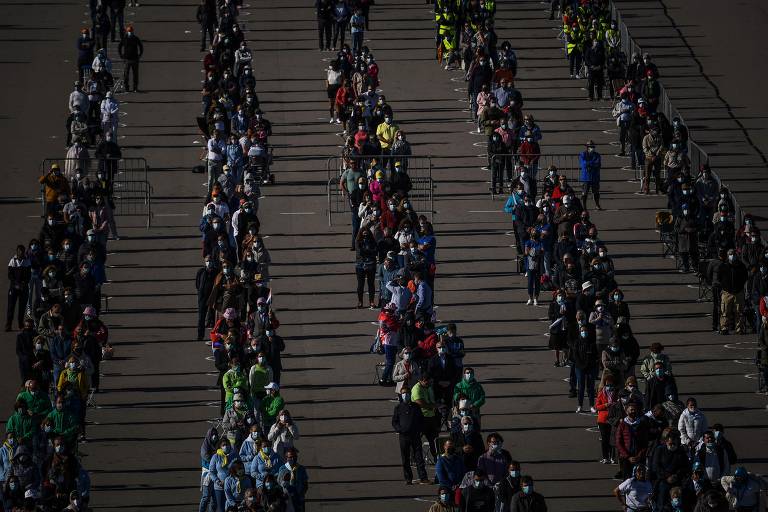RIO DE JANEIRO, BRAZIL – On Wednesday, October 14th, the Portuguese and French governments announced new measures to contain the second wave of Covid-19.
In Portugal, the alert level throughout the country was raised by decree to a state of calamity, the last level before the state of emergency. The measure, which will be in effect from midnight Thursday (8 PM, Brasília time), is a reaction to the surge of Covid-19 cases – the second wave that is affecting much of the European continent.

In France, a curfew has been decreed for four weeks in the Ile-de-France region, which includes Paris, and in nine other cities, including Toulouse, Lyon and Grenoble.
It was also announced that security and health authorities in Portugal will tighten controls, whether in public spaces or in companies and restaurants. Those who fail to comply with the guidelines may be fined up to EUR10,000 (around R$65,500).
“Unfortunately, Portugal is not an exception and we can classify the evolution of the pandemic in our country as serious,” said Prime Minister António Costa. “People may be infected and spreading the virus unknowingly because they don’t feel anything. The only way to ensure that we are not passing on the virus is to take care at all times, in all circumstances.”
The government will also submit an urgent bill to Parliament in order for the wearing of masks to be compulsory on the streets – not just in enclosed areas and public transportation, as has been the case until now. A bill will also be forwarded to the Legislature for the use of the “Stay Away Covid” infection-tracking App to be mandatory in academic and work environments, in government offices, and among security forces.
According to the Socialist Party Prime Minister, no group meetings of more than five people will be allowed (the former limit was ten), while university celebrations and other non-academic events in educational establishments will be suspended.
Personal celebrations, such as weddings and baptisms, will be limited to 50 people, who must respect the social distancing guidelines. Last week, the General Director of Health, Graça Freitas, stated that events of this type “have been responsible for 67 percent of reported cases in the country in recent days.”
Costa, who announced the decision after a Cabinet meeting, stressed that the rules for teleworking and the country’s borders will remain open for the time being, with precautionary measures being upheld.
Portugal entered a state of emergency on March 18th, when there were 78 confirmed cases in the country, placed under confinement. The measure was extended on three other occasions and finally suspended on May 2nd. At the time, the alert level was reduced to a state of calamity, amid gradual deconfinement.
As routine began to return and cases were under control, the country began July with most of its regions in a state of alert, the mildest, or in an intermediate situation of contingency. By the end of that month, the entire country was under the state of alert.
However, since then, the number of cases has been rapidly growing, as in several other European countries. The total number of daily diagnoses increases every day, and on Wednesday it reached its record since the start of the pandemic: the country recorded 2,072 new infections.
In all, Portugal has registered 91,193 confirmed infections, with 2,117 deaths.

